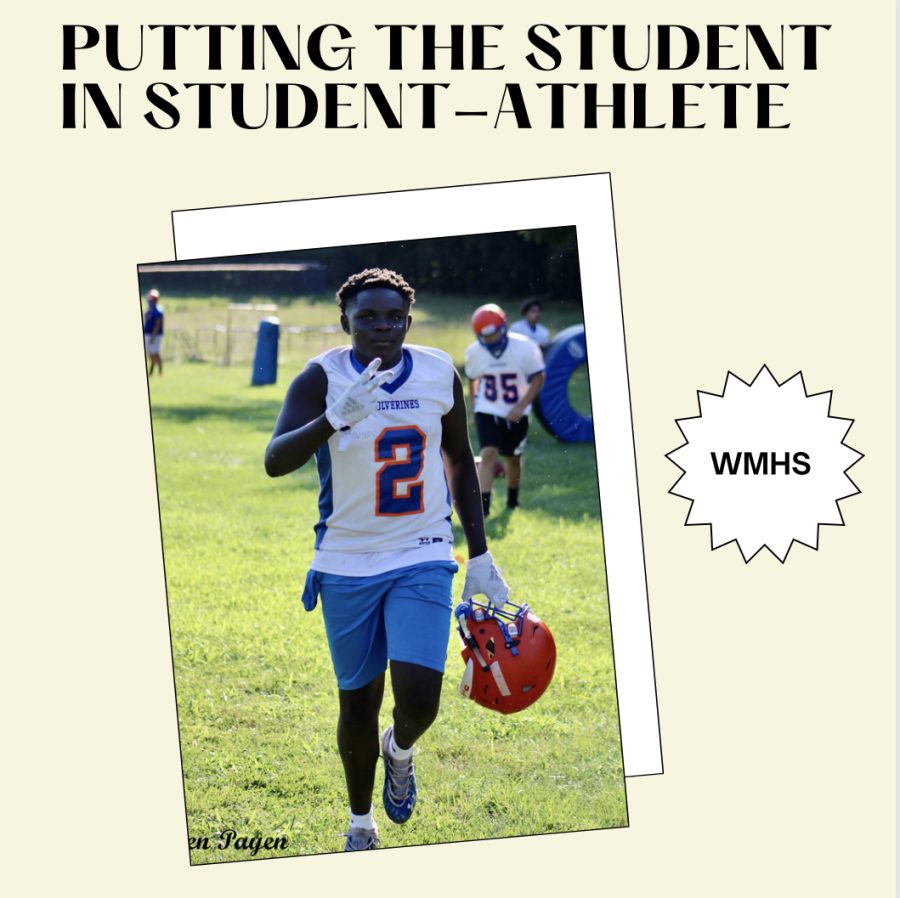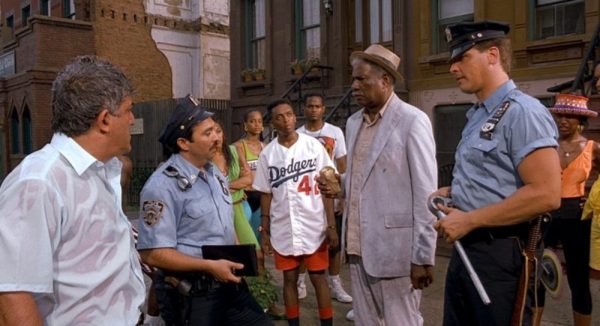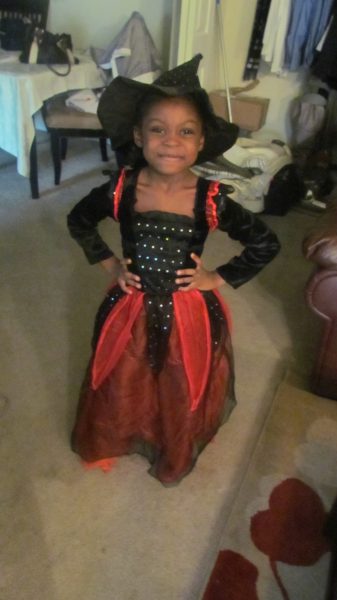Putting the ‘student’ in ‘student-athlete’ at Watkins Mill
Watkins Mill High School prioritizes education, junior Malick Sarr (pictured) is an example of that.
If Nate Jacobs, the character from Euphoria, is who comes to mind when thinking about high school athletes, then you’ve been watching too much television and have not been paying attention to the student-athletes at Watkins Mill High School.
Varsity lacrosse coach Bryan Lanham recently sent out an email to teachers concerning student-athletes; urging them to notify him if students misbehaved or failed to keep up with their academics.
The purpose was to “let the teachers know that as a teacher and a coach, I want to hold [student athletes] accountable,” Lanham said. The new policy was introduced this year after teachers came to Lanham with concerns about his student athletes’ behaviors in class. All players agreed and signed a contract as part of joining the lacrosse team. “They’re held to higher expectations because they’re players,” Lanham added.
While Lanham puts emphasis on holding students accountable for their actions and implementing this policy, he isn’t the only coach who emphasizes the importance of education.
“There’s no student-athlete without the student first,” varsity football coach Chad Wilson said. Wilson enforces the same rules and regulations on his athletes, reflected by the official student handbook outlining the expectations for football players.
“It gets to a point where it’s very tiring having to wake up, go to school, and even attempt to do homework; especially for student-athletes that are in the IB program,” football player and junior Malick Sarr said.
Many student-athletes face a lot of pressure from both academics and sports. Despite these struggles, they all agree with the idea that student-athletes should always be treated as students first before anything else. “I fully agree [with the new policy], if anything I think a lot of sports teams should use it,” sophomore lacrosse player Kevin Villalobos Garcia said.
Lanham and other teachers are aware of the pressures student-athletes face. However, they also believe that students need to learn how to be accountable, have great time management skills, and advocate for themselves to prevent them from struggling academically later in life.
“I think all coaches should be strict on their players,” science teacher Charles Miller said. “You’re not just developing them as athletes, you’re developing them as people and as students.”
Your donation will support the student journalists of Watkins Mill High School. Your contribution will allow us to purchase equipment and cover our annual website hosting costs.










